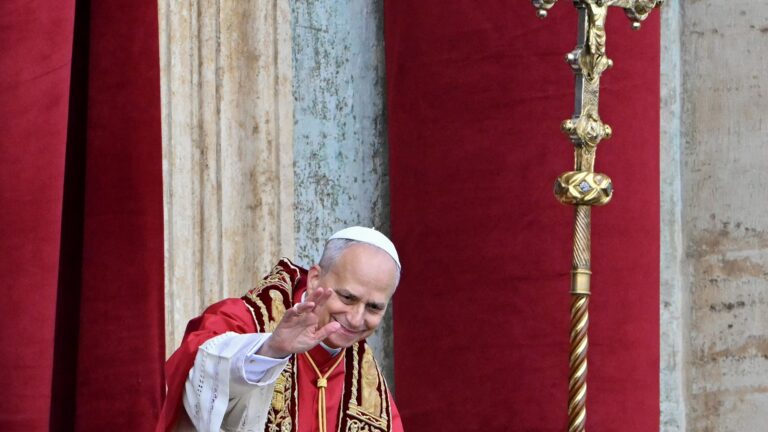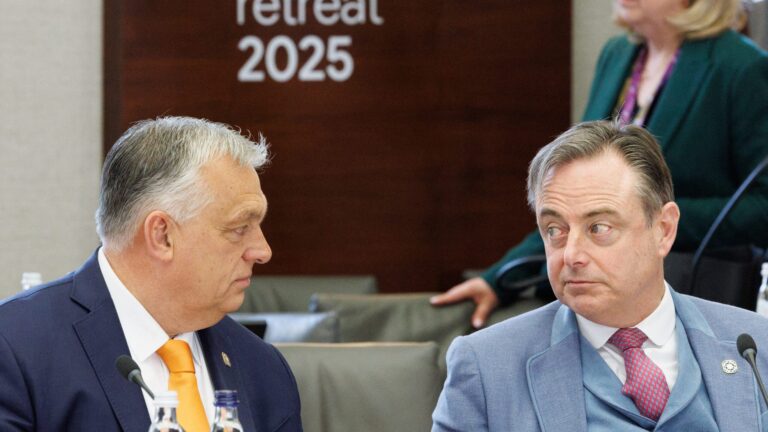Based on the latest public opinion survey by the Nézőpont Institute, Hungarians do not support the position of the European People’s Party (EPP) and its president, Manfred Weber, on numerous important issues, from the war to migration. This could pose a serious dilemma for the Tisza Party, which has joined the left-leaning EPP. Meanwhile, the programme of the Patriots, which has become the strongest force of the European right, aligns with the will of the majority of Hungarian voters.
While Patriots for Europe, with the leadership of Fidesz, has been formed in the European Parliament with a focus on national interests, the EPP has once again formed a left-wing coalition with the socialists and liberals, referred to as the ‘pro-war’ coalition by the governing parties. Hungarian left-wing parties, notably the Tisza Party led by Péter Magyar, have joined this coalition, Nézőpont reminds.
The Institute examined how EPP MEPs voted on five highly significant issues in the previous European parliamentary term, how Hungarians view these issues, and how the new right-wing party family, Patriots for Europe, which issued its Patriotic Manifesto on 30 June, aligns with these views. Based on the comparison of public opinion survey results and voting statistics of the party group, the EPP represented values entirely opposed to those of Hungarian voters on issues such as sovereignty protection, child protection, migration quotas, duty-free status of Ukrainian agricultural products, and the issue of frozen EU funds.
71 per cent of Hungarians consider it necessary to tighten Hungary’s child protection law (and do not agree that tightening is unnecessary), with only 22 per cent deeming it unnecessary.
In contrast, 68 per cent of the EPP voted for a European Parliament resolution condemning the Hungarian child protection law.
The adopted document criticized, among other things, the Fundamental Law’s statement that the mother is a woman, the father is a man, and that Hungary protects children’s rights to establish their identity in accordance with their birth gender.
Another step opposed to the majority opinion of Hungarians was the adoption of the migration pact. While over two-thirds (69 per cent) of Hungarian voters oppose an EU member state having to pay 8 million HUF if it does not accept a migrant asylum application sent from another member state, 80 per cent of the EPP voted for the ‘mandatory solidarity mechanism’ migration quota, which penalizes non-accepting countries.
Not only Hungarian but all Central European farmers have been negatively affected by the EU trade rules relaxed under the pretext of the war with Ukraine. 69 per cent of Hungarians oppose allowing duty-free Ukrainian agricultural products into the EU, while 77 per cent of the present EPP members voted for their duty-free status. The Patriotic Manifesto does not address the war in Ukraine, as it is not a political pamphlet but a founding document. However, the text still reveals that the founders’ vision of Europe is that of nations prepared to protect their peoples against any and all potential threats, including economic ones.
Finally, but not least, there is a significant divergence in opinions on the frozen EU funds. The majority of Hungarians (55 per cent) believe it is unjust to withhold EU financial support from Hungary. In contrast, 90 per cent of the EPP members supported the Brussels financial sanctions. The Patriotic Manifesto, in agreement with the majority of Hungarians, highlights that the Europe it envisions cannot justify ‘its attacks on national sovereignty through pressure exerted via the European budget.’
Related articles:







